August 2017 marks the 50th anniversary of the untimely death of playwright, Joe Orton. Curator of Printed Books, Dr Beverley Hart, looks back at Orton’s controversial career.
Monday 27 February 1967:
In South Kensington, admired the architectural splendours of the Science Museum and the V&A.
Joe Orton’s diary entry is followed by the approving verdict of his agent, Peggy Ramsay, on Up Against It, his unproduced screenplay for The Beatles.
Less than six months later Orton’s coffin would be carried to the accompaniment of ‘A Day in the Life’, the final track on Sergeant Pepper’s Lonely Hearts Club Band, the best-selling album of the ‘Summer of Love’.
Orton had been bludgeoned to death by his boyfriend, Kenneth Halliwell, just as he was beginning to reap the rewards of his writing career. The murder, and Halliwell’s suicide, were discovered on 9 August 1967, when Orton was due at a meeting to discuss his Beatles’ script. The chauffeur sent to collect him raised the alarm.
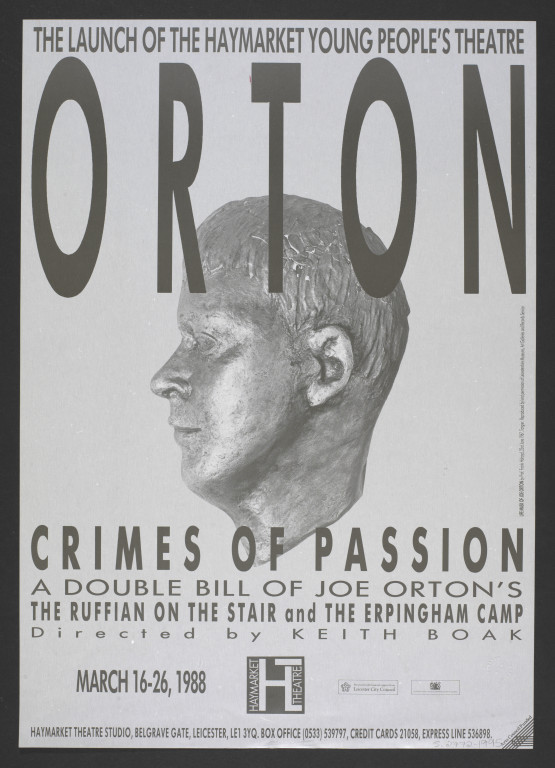
1988, S.2772-1995 © Victoria and Albert Museum, London
Born John Kingsley Orton in Leicester in 1933, he had trained as an actor at RADA, where he met Halliwell, a soulmate with a troubled soul. Acting ambitions evolved into writing, in Orton’s case ‘liberated’ by a spell both men served in separate prisons for wittily defacing hundreds of Islington’s library books. Orton attributed the severity of these sentences to their sexuality: “because we were queers”.
Entertaining Mr Sloane opened at London’s Art Theatre Club in 1964, transferring to Wyndham’s Theatre, with the blessing and financial support of Terence Rattigan, a gay playwright with a radically different sensibility.
Orton’s best-known play Loot, in which the proceeds of a bank robbery are concealed in the coffin of the recently-expired Mrs McLeavy, helped coin the adjective ‘Ortonesque’: dark, comic, cheerfully amoral, and frequently anarchic. Its 1965 opening in Cambridge was disastrous. As the V&A’s copy of the script vetted by the Lord Chamberlain demonstrates, considerable quantities of blue pencil censored its calculated irreverence. When Mrs McLeavy’s funeral cortège is involved in an accident, Dennis informs her widower that his ‘wreaths are blown to buggery’, which is firmly altered to ‘have taken a right pasting’, which neuters the alliterative rhythm of Orton’s idiom.
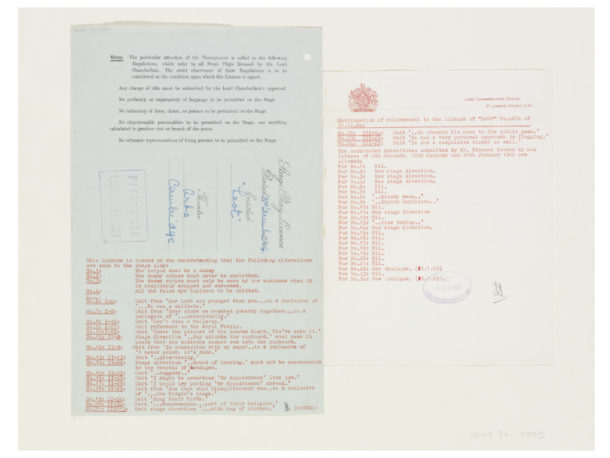
The production also starred a miscast Kenneth Williams as the corrupt, slow-witted Inspector Truscott. A revised version, with much of its bite restored, opened at the Jeanetta Cochrane Theatre in 1966, and transferred to the West End where it was still running at the time of Orton’s death. The part of Truscott was now taken by Michael Bates, who would later play one of the original trio in Last of the Summer Wine. During this run Orton’s mother died. It amused him to echo events in the play, in which the late Mrs McLeavy’s false teeth are played like castanets, by passing Elsie Orton’s dentures around an understandably unnerved cast.
In the archive of theatrical manager Oscar Lewenstein a scrapbook records the critics’ reaction to the revamped Loot. Press coverage included a nod to Vyvyan Denzey’s right arm, which won her a ‘first professional stage part’ when required to flop lifelessly from the coffin (‘I just hope I don’t fall asleep’). On the strength of this she hoped to gain an Equity card. ‘All this for £15 a week’ commented the Daily Sketch.
Although J.C. Trewin’s mildly ironic observation in the Birmingham Post that ‘this is so sick a farce that for me it is practically dead’ struck a sour note, others praised Loot’s plotting. Most applauded the freshness of Orton’s dialogue: ‘the ‘incongruous use of glossy copywriter’s language’ (Simon Trussler, The Tribune).The Times critic found the comedy rooted in ‘the contrast between violently anarchic action and dialogue of the utmost gentility’. Loot won the Evening Standard Award for Best Play of 1966.
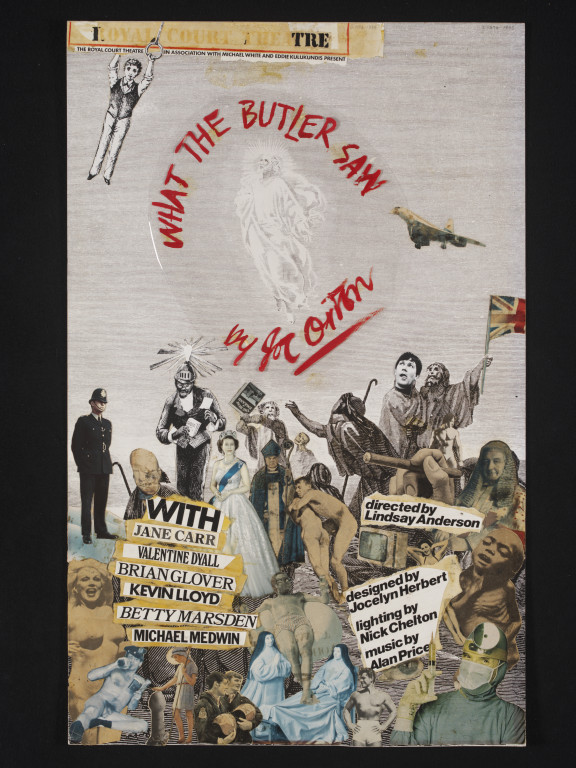
Orton’s last play What the Butler Saw (1969), which he did not live to re-write, toured prior to a West End run. Sir Ralph Richardson, starring as Dr Rance, remarked ‘it’s a clockwork mouse of a play. It’s wound up, and you let it go, faster and faster until you think it couldn’t go so fast’. The Cambridge Review described it as ‘turning Feydeau loose in Kafka territory’. Predictably it was not to all tastes. It was booed by a faction in the gallery on its first night, and horrified one Cambridge playgoer who wrote to the local newspaper pronouncing it ‘reminiscent of fourth-form smuttiness’. Despite asserting that ‘war-time army experience and thirty years dealing with farm stock and stockmen’ cleared him of prudishness, he adds that ‘as a rugby reporter your theatre critic is presumably healthy’ and therefore ought ‘to tell the public what he really thinks of this depraved rubbish’.
This posthumously channels the permanently outraged Mrs Edna Welthorpe, Orton’s fictional alter ego, who regularly corresponded publicly on matters as diverse as fruit pie filling or the scandalous content of Joe Orton’s plays.
Despite Orton’s reputation as a promiscuous enfant terrible and cynical iconoclast, there is another version. Actor Kenneth Cranham, interviewed on BBC Radio 3, remarked that Orton’s nature was ‘brimming with sweetness, kindness, and pleasure at his success … a one-word description would be ‘twinkle’.
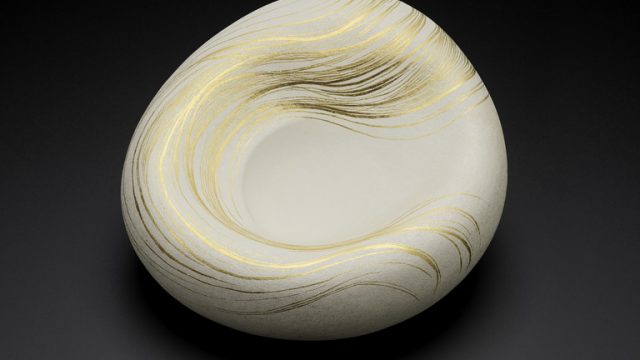
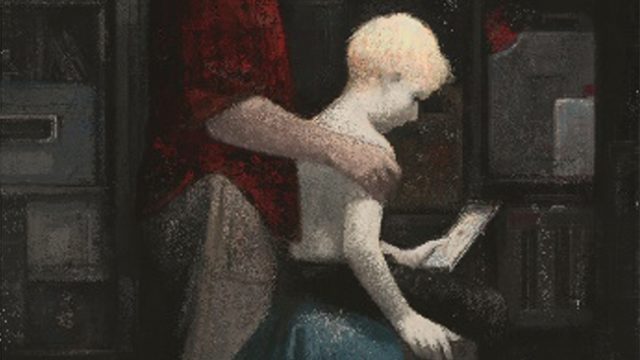

it’s a clockwork mouse of a play. It’s wound up, and you let it go, faster and faster until you think it couldn’t go so fast’.